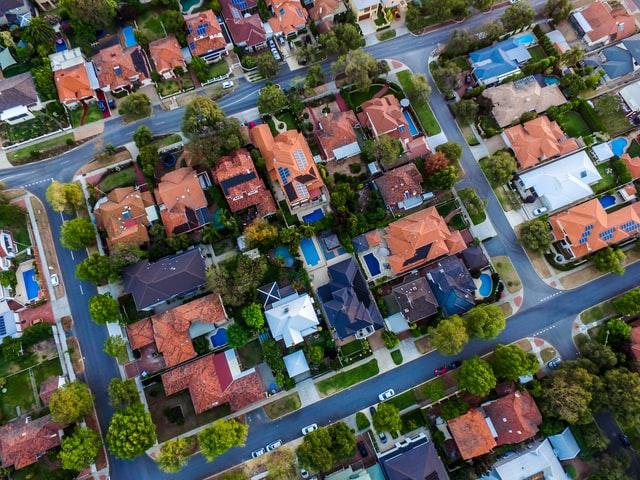The housing market has experienced many ebbs and flows since the bubble of 2007, and the resulting regulatory oversight that resulted from multiple investigations.
Since the early stages of the pandemic, real properties are again facing fairly dramatic swings. Housing prices continue to rise as construction projects slow due to rising costs and supply chain challenges. Industrial, commercial, and retail properties sit idle or empty due to forced closures. Circumstances could indicate another housing bubble on the horizon.
Economic Impact of Housing Trends
The national economy has a close connection with the housing market. The shifting relationship may be parallel or opposite, depending on the current trends. As the bank rate and mortgage interest rates fluctuate, so does the demand for residential housing.
During periods of positive growth, the mortgage interest rates are generally low enough to make it easy for borrowers to be approved for a purchase or refinance a loan. The ease with which a consumer can borrow money is directly linked to economic growth.
On the other end of the economic spectrum, the opposite is true. Generally speaking, as the cost of borrowing money rises, the housing market experiences decreased demand. Housing bubbles are created when the market has been pushed to its maximum capacity through the natural laws of supply and demand. Loan originators and underwriters facing pressure to move quickly may cut corners or become less than meticulous about necessary paperwork and loan verification documents. The resulting financial strain in previous housing bubbles produced hundreds of real estate investment funds made up primarily of defaulted mortgage notes.
Bursting the Bubble
Evidence suggests that the national economy may be experiencing another housing bubble. However, improved regulatory oversight has been instituted to avoid the far reaching fallout that occurred in 2008. Internal checks and balances exist within the mortgage industry and bankers continue to be selective and consistently perform their due diligence when selecting underlying investments for their portfolio mix.
Real estate opportunities span across residential, commercial, industrial, raw land, and special use. A well rounded portfolio should have several avenues for residual income streams, such as rental payments. Due to the illiquid nature of real property, investors and business owners must carefully consider their real estate investment strategy.
Project Real Estate Values
As the housing market ebbs and flows, the American economy shifts in response and anticipation. Traditionally bullish and bearish investors both find good reason to follow the housing market and other real estate trends. Considering the high degree of volatility associated with the national housing market and real estate investment projects, a comprehensive valuation is a necessary part of the sale or purchase of real property.
Our team has decades of experience in the real estate industry, from entertainment complexes to multi-family residential to complex industrial properties. Contact us today to learn more.

